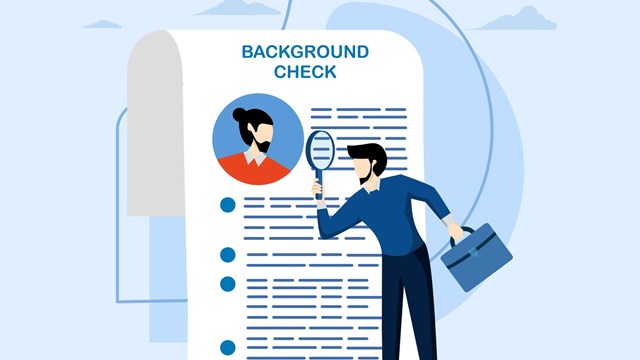Congratulations! You've either found that perfect and your offer has been accepted, or you've identified a purchaser who has agreed to your sales price. Your application has been approved and now you're ready to proceed with the sales transaction. At this point, you probably feel that a great weight has been lifted and all you need to do is relax and let "the powers that be" do their thing.
Ideally, you should be able to do just that. But, in the real world, people make real mistakes - and these mistakes can cost you precious time and money, not to mention cause real problems at the closing. Delay, adjournment, and even cancellation of the transaction are most often the result of someone forgetting to do something prior to the closing table or neglecting to bring what they were supposed to bring.
But do not despair. There are certain measures you can take to minimize the chances of someone else's folly turning your purchase or sale experience into a nightmare. As Herbert L. Cohen, a partner with the Manhattan law firm of Stiefel and Cohen, says, "A closing is no place for surprises, so advance preparation is essential." To that end, here are ten steps to ensure that your transaction moves forward and that your closing is as smooth as possible.
Once the sales process gets under way, maintain written documentation of all conversations, agreements, questions and responses between yourself and other parties involved (for instance the buyer or seller, your attorney, the attorney for the other party, lending institutions and the closing department). While it would be nice to believe that people stick to their words, when it comes to a legal transaction such as the purchase or sale of an apartment, handshakes aren't enough and you shouldn't take anyone's word for anything.
Selective memory of what might have been said during a conversation is common when people have changed their minds or painted themselves into a corner, so write everything down and request, receive, review and retain copies of all correspondence from your attorney and from the other party's attorney and the management company. All documentation and records should then be brought to the closing to ameliorate any misunderstandings that might arise at the table.
"Many buildings have their own specific requirements, and often, attorneys, buyers, and sellers are caught off base when they haven't properly acquainted themselves with those requirements," says Timothy V. Smith, an attorney who is also vice president of a co-op on East End Avenue.
Hence, all parties should be informed in writing of, and agree to in writing, any and all applicable closing costs and other obligations attendant to the closing process before they come to the closing. This way, any questions about a specific requirement can be addressed prior to demand and there will be no unpleasant surprises at the closing table.
If you are the buyer, your attorney should obtain a copy of the most current stock certificate on the apartment prior to conducting a lien search in order to ensure that the corporation name and the names of all shareholders are listed correctly. This will avoid the issue of inconsistency and help prevent an adjournment of the closing.
Make sure there are no arrears, penalties, liens or other encumbrances on the apartment prior to the closing. You should come to documented terms regarding how these obligations will be relieved before you go to the closing. This is critical for both the buyer and the seller, especially because it's not uncommon for sellers who've had long-standing disputes regarding maintenance arrears or repair issues to be forced to relinquish their arguments due to closing obligations. In any case, don't wait until the last minute. Clear up any outstanding issues as quickly as possible prior to moving forward.
The unfortunate fact is that one out of every five contracts of sale do not list the transacting parties' names correctly, and contradictory data will most assuredly postpone your closing. Even the slightest variation in the way names appear, such as the use of a middle on the sales application but not on the loan application, can cause problems.
Therefore, it is essential to make sure that the names of the transacting parties are precisely identical on all documents in order to avoid a problem at the closing table. As either the buyer or the seller, you should verify in advance of the closing with all other parties involved exactly how the names are to read on the corporation documents, the loan documents and all other documents pertinent to the transaction.
If you don't plan to attend your closing, you will have to grant a power of attorney to a designated individual to act on your behalf. The executed power should be forwarded to all other parties prior to the closing to ensure that it has been prepared properly and is acceptable to everyone. Remember: Once you're at the closing table, there is simply no way to change an incorrect or unacceptable Power of Attorney.
Any and all walk-throughs of the subject apartment should be conducted with representatives of both the buyer and the seller present, especially the final walk-through. Any issues that arise during the walk-throughs should be discussed, settled and documented in writing prior to the closing to avoid arguments at the closing itself.
Any fees that must be certified should be obtained prior to the closing, and copies of the certified checks should be faxed to the requester before the closing to ensure that the amounts and payees are correct. Failing to do this could result in an adjournment if even the smallest item is incorrectly indicated on the check. Of course, remember to bring the actual certified checks to the closing for disbursement.
If you are the seller, you will be required to make payment at the closing of certain taxes on the consideration paid for your apartment. So, prior to the closing you should find out from your attorney the exact amounts you will have to remit. You should also make sure that your New York State and New York City real property transfer tax returns and applicable checks are prepared prior to the closing. Most importantly, remember to bring them with you to the closing.
All too often it happens that closings are either delayed or adjourned because one or more of the involved parties were given an incorrect time or meeting place. To avoid this situation, you, your attorney and all other parties expected to be present at the closing should have the time, date and location of the closing confirmed in writing well in advance of the actual event. You should verify this information on the last business day before the closing is scheduled.
Also, in addition to bringing all relevant documentation as described above, make sure to bring valid photo identification, such as a driver's license, to the closing. Conscientious sellers and purchasers eager to consummate a sales transaction will do everything possible to make sure that their closing goes without a hitch.
It doesn't hurt to ask your attorney for a checklist of items required to be delivered at the closing and to make sure you know who is responsible for their delivery. Know exactly how much money you will have to pay at the closing, to whom the funds must be paid and whether or not the funds need to be certified. And remember to bring to the closing a copy of your commitment letter and rate lock-in documentation, the telephone numbers of your mortgage broker or loan officer, your checkbook and a ballpoint pen that writes in black ink. Assuming all other arrangements and agreements are in order, following the steps above will go a long way toward ensuring a smooth closing.









Leave a Comment